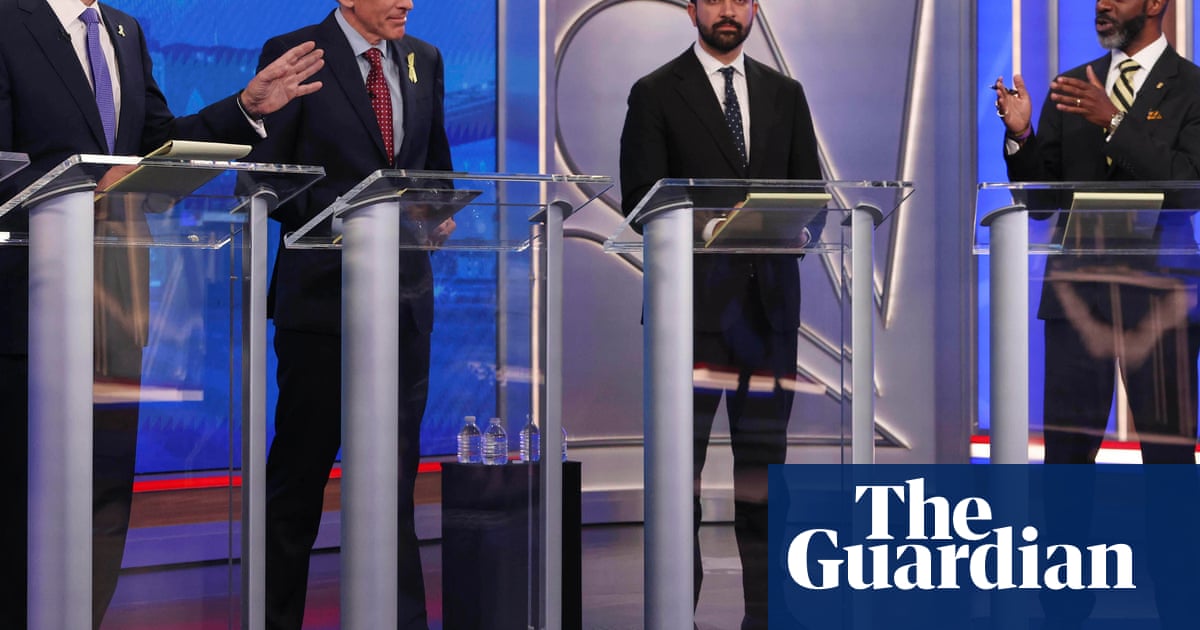Nine Democratic candidates forNew YorkCity mayor faced off on Wednesday evening in the first of two debates ahead of this month’s primary election.
Held without a live audience, the two-hour debate focused on issues facing New York City, including housing, affordability, crime, policing, public safety, and how each candidate would handle the Trump administration if elected.
From the outset, the two frontrunners, former New York Governor Andrew Cuomo, and Queens Assemblyman and democratic socialist Zohran Mamdani, sparred over their records.
Mamdani,who has seen a recent surge in popularity, accused Cuomo of being beholden to wealthy donors and corporate interests, adding that he cared more about the “1%”, “the billionaires and the profitable corporations” than “working-class New Yorkers.”
“The difference between myself and Andrew Cuomo is that my campaign is not funded by the very billionaires who put Donald Trump in DC,” Mamdani said.
Cuomo, who ismounting a political comebackafter resigningfrom office in 2021 amid sexual harassment allegations,dismissed 33-year-old Mamdani as inexperienced.
“He’s been in government 27 minutes” Cuomo said. If Mamdani were elected Mayor, Cuomo added, Trump would go through him like a “hot knife through butter.”
The crowded debate stage also featured Adrienne Adams, speaker of the New York City Council; Brad Lander, the current New York City comptroller; Scott Stringer, the former comptroller; Michael Blake, a former state assemblyman from the Bronx; Zellnor Myrie, a Brooklyn state senator; Jessica Ramos, a Queens state senator; and Whitney Tilson, a former hedge fund manager.
Cuomo was a frequent target throughout the night, with candidates launching attacks at his record, criticizing his handling ofnursing home deaths during the Covid-19 pandemicand the sexual harassment allegations.
A 2021 report by the New York attorney general found that the Cuomo administrationundercounted thousandsof deaths of state nursing home residents during the pandemic.
On Wednesday, Cuomo defended the report and insisted that nursing home deaths were not undercounted.
“There was no doubt that my administration produced the report, and it did not undercount the deaths,” Cuomo said.
He also defended himself against the harassment claims, saying, “the report was done. Nothing has come out of it.”
Current New York City Mayor Eric Adams was also frequently criticized on the debate stage despite not being there. Adams announced earlier this year that he would seekre-election as an independent candidatealthough he ran as a Democrat in 2021.
At one point, when asked about their biggest political regrets, City Council speaker Adrienne Adams replied, “My biggest regret is believing that Eric Adams would be a good mayor for all New Yorkers.”
Mamdani said his regret was “trusting leaders of Democratic party like Cuomo.”
While Cuomo answered: “the state of the Democratic party” prompting backlash from Speaker Adams.
“No personal regrets?” she asked. “No regrets when it comes to cutting Medicaid or healthcare? No regrets when it comes to slow-walking PPE and vaccinations in the season of Covid to Black and brown communities? Really, no regrets?”.
Cuomo pushed back, calling her claims “inaccurate” and saying that “Medicaid went up under me.”
Wednesday’s debate marked the first of two scheduled Democratic primary debates before the primary election later this month. The second debate is set for 12 June.
The Democratic primary election will be held on 24 June, with early voting beginning 10 days earlier, on 14 June. New Yorkers will cast their votes usingranked-choice ballot, allowing them to select up to five candidates in order of preference.
The general mayoral election is scheduled for 4 November.
